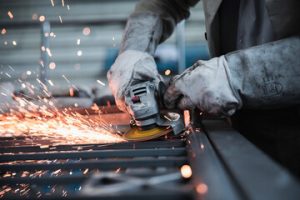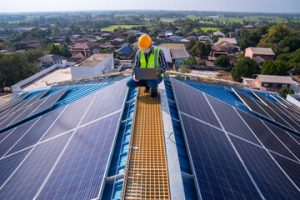Metal has always been more than just a material; it is a foundation upon which innovation continues to grow. From the earliest tools to the most advanced structures and technologies, metal remains deeply woven into the progress of modern living. Its strength, flexibility, and durability make it one of the most valuable resources in construction, manufacturing, transportation, and everyday products.

As industries evolve and sustainability becomes a greater priority, the role of Creative Metal is expanding in ways once unimaginable. Today, modern fabrication techniques, advanced alloys, and precision engineering allow metal to shape not only physical environments but also the way people interact with technology, infrastructure, and design.
One of the most remarkable qualities of metal is its adaptability. Unlike many materials that serve a limited purpose, metal can be cut, molded, welded, and reshaped into countless forms without losing its core strength. This versatility has made it an essential element in both functional and aesthetic applications. Whether used in architectural frameworks, interior décor, transportation systems, or high-performance machinery, metal continues to evolve alongside human creativity. Designers and engineers are constantly discovering new ways to combine durability with visual appeal, proving that practicality and beauty can coexist within a single material.
Modern fabrication processes have significantly changed how metal is used in everyday life. Advanced cutting methods, automated forming techniques, and innovative finishing processes allow for greater precision and efficiency than ever before. These advancements have reduced material waste while improving production speed, making metal solutions more accessible across industries. In addition, the integration of digital design tools has opened the door to complex geometries that were once difficult or impossible to achieve. As a result, metal is no longer confined to traditional shapes; it now supports intricate designs that enhance both performance and style.
Another reason metal continues to shape the future is its durability and longevity. In a world increasingly focused on sustainability, materials that can withstand wear and tear while maintaining structural integrity are highly valued. Metal structures often last for decades with proper maintenance, reducing the need for frequent replacements and minimizing environmental impact. Furthermore, many metals can be recycled repeatedly without losing their essential properties, making them a key component in sustainable manufacturing practices. This circular lifecycle supports eco-friendly initiatives and encourages industries to rethink how materials are sourced and reused.
In modern architecture, metal has become a symbol of innovation and forward-thinking design. Its ability to support large spans, resist environmental stress, and maintain a sleek appearance has transformed the way buildings are constructed. Architects use metal to create open spaces, striking facades, and durable frameworks that blend function with artistic expression. Beyond structural uses, metal elements are also incorporated into railings, panels, and decorative accents, adding texture and character to contemporary spaces. This balance between strength and elegance demonstrates why metal remains a cornerstone of modern construction.
The influence of metal extends far beyond buildings and infrastructure. In everyday products, metal contributes to reliability and performance in ways that often go unnoticed. Household appliances, tools, and transportation components rely on metal for stability and precision. Even small design details, such as hardware or fixtures, benefit from the resilience of well-crafted metal parts. These subtle contributions enhance safety, efficiency, and convenience, showing that metal’s impact reaches into nearly every aspect of daily life.
Innovation within the metal industry is also being driven by the demand for customization. As consumers and businesses seek unique solutions, custom fabrication has emerged as a powerful tool for turning ideas into reality. Instead of relying solely on mass-produced components, many projects now involve tailored metal pieces designed to meet specific requirements. This approach allows for greater creativity while ensuring that functionality remains a top priority. Custom fabrication demonstrates how metal can be adapted to diverse applications, from specialized machinery to personalized design features.
There are several key advantages that make metal an irreplaceable material in modern life:
- Strength and resilience: Metal can handle heavy loads and resist damage from environmental factors, making it suitable for long-term use in demanding conditions.
- Versatility in design: Its ability to be shaped into various forms allows designers to experiment with innovative structures and artistic concepts.
- Recyclability: Many metals can be reused without significant loss of quality, supporting sustainable practices and reducing waste.
- Compatibility with technology: Metal integrates seamlessly with advanced manufacturing processes, enabling precision and efficiency in production.
These benefits highlight why industries continue to invest in metal solutions even as new materials emerge. Rather than being replaced, metal often works alongside other materials to create hybrid systems that combine the best of multiple properties.
Another area where metal is making a significant impact is in transportation and mobility. Lightweight alloys and high-strength components are helping improve efficiency while maintaining safety standards. By reducing overall weight without compromising durability, metal innovations contribute to better energy performance and reduced emissions. This balance between performance and sustainability reflects the evolving priorities of modern engineering. As transportation systems continue to advance, metal will likely remain at the center of innovation, enabling smarter and more efficient designs.
The aesthetic possibilities of metal are equally impressive. While traditionally associated with industrial environments, metal has found its place in interior design and artistic applications. Brushed finishes, polished surfaces, and textured patterns allow metal to complement a wide range of styles, from minimalist to highly decorative concepts. Its reflective qualities can enhance lighting and create a sense of openness within a space. Designers appreciate metal not only for its strength but also for its ability to add sophistication and visual interest to modern environments.
Technological advancements are further expanding the potential of metal through smart manufacturing techniques. Automation and digital modeling enable precise control over production processes, reducing errors and improving consistency. With the help of advanced software, designers can simulate stress points and performance outcomes before a single piece is fabricated. This predictive approach saves time, lowers costs, and ensures that final products meet high standards of quality. As technology continues to evolve, the collaboration between digital innovation and metal fabrication will unlock even more possibilities.
Looking ahead, the future of metal lies in its ability to adapt to changing global needs. Industries are increasingly focused on reducing environmental impact while maintaining performance and reliability. Metal’s recyclability and long lifespan make it a strong candidate for sustainable solutions, especially when combined with responsible sourcing and efficient production methods. Researchers are also exploring new alloys that offer improved strength-to-weight ratios and enhanced resistance to corrosion, opening the door to applications that push the boundaries of what metal can achieve.
To fully understand the endless potential of metal in modern life, it is helpful to consider the ways it continues to evolve alongside innovation:
- Integration with renewable technologies: Metal components support energy systems that rely on durability and precision.
- Advanced fabrication methods: New techniques allow for complex shapes and improved performance.
- Sustainable design strategies: Recycling and efficient manufacturing processes reduce environmental impact.
- Customization and personalization: Tailored metal solutions enable unique designs that meet specific functional needs.
These trends illustrate how metal remains a driving force behind progress. Rather than being confined to traditional roles, it adapts to new challenges and opportunities, proving that even one of humanity’s oldest materials can remain at the forefront of innovation.
Ultimately, the story of metal in modern life is one of transformation and resilience. Its journey from raw resource to refined component reflects the ingenuity of those who shape it into tools, structures, and designs that improve everyday experiences. As industries continue to explore new possibilities, metal stands as a symbol of strength and creativity, bridging the gap between practicality and imagination. Whether supporting large-scale infrastructure or enhancing the smallest details of daily living, metal’s influence is both profound and enduring.
As the world moves forward, the endless potential of metal will continue to shape the future in ways that inspire innovation and redefine what is possible. Its unique combination of durability, versatility, and sustainability ensures that it remains an essential material for generations to come. By embracing new technologies and creative approaches, modern fabrication and design will keep unlocking new dimensions of metal’s capabilities, proving that its role in shaping the future is far from complete.





